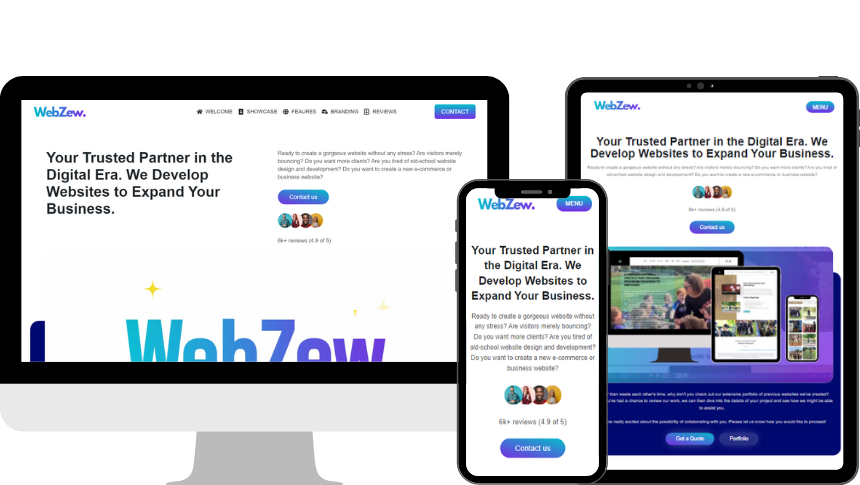Imagine running a bustling online shop where customers share their details without a second thought. But in the back of your mind, you’re worried about data leaks or hefty fines from privacy regs. That’s where AI-based privacy managers come in – they’re like smart guardians for your site, using artificial intelligence to keep things secure and compliant.
In today’s digital world, privacy isn’t just a nice-to-have; it’s essential. With data breaches making headlines and laws like GDPR tightening up, websites need tools that go beyond basic setups. AI-based privacy managers are stepping up, automating tasks that used to take hours and spotting risks before they blow up.
This article dives deep into what these tools are, why they’re crucial for next-gen websites, and how they can transform your online presence. Whether you’re a small business owner or a web developer, you’ll find practical insights to make your site safer and more trustworthy.
Definition and Importance
AI-based privacy managers are sophisticated software solutions that leverage artificial intelligence to handle data privacy on websites. They monitor user data, ensure compliance with regulations, and protect against threats – all in real time.
But why the buzz? In an era where data is gold, protecting it builds trust. Users are savvy; they abandon sites that feel shady about privacy. These managers aren’t just tech; they’re a bridge to better user relationships.
Why Websites Need AI-Driven Privacy Tools
Think about it: traditional privacy methods are like old locks on a door – functional but easy to pick. AI-driven tools are smart alarms that learn and adapt.
Websites collect tons of data – from emails to browsing habits. Without proper management, this can lead to leaks or non-compliance. AI steps in to automate monitoring, reducing human error and keeping pace with evolving threats.
For next-gen sites with high traffic or personalised features, these tools are a must. They handle complex data flows that manual systems can’t, ensuring your site stays ahead in a privacy-conscious world.
How AI Enhances Privacy Management
AI isn’t magic; it’s maths and algorithms working overtime. In privacy management, it analyses patterns to safeguard data smarter than ever.
Picture a system that watches every data interaction on your site. That’s AI at work, enhancing privacy without slowing things down.
Machine Learning for Data Monitoring
Machine learning, a subset of AI, excels at spotting anomalies. It learns from past data to flag unusual activities, like sudden spikes in access attempts.
For instance, if a user from an odd location tries to download bulk data, the system alerts you instantly. This proactive approach prevents breaches before they happen.
Predictive Algorithms for Privacy Risks
Predictive algorithms forecast risks based on trends. They might predict a vulnerability in your cookie setup by analysing similar sites’ issues.
This foresight means you fix problems early, avoiding costly fixes later. It’s like having a crystal ball for privacy woes.
Automated Compliance Tracking
Compliance is a headache with laws changing often. AI automates tracking, scanning your site against regs like CCPA or CPRA.
It generates reports and suggests tweaks, saving time and ensuring you’re always audit-ready.
Challenges in Website Privacy Today
Privacy challenges are everywhere. From sneaky trackers to user fatigue, websites face a minefield.
Data breaches cost millions – not just in fines but in lost trust. In 2025, with more connected devices, these issues are amplified.
User Data Leaks
Leaks happen when data isn’t secured properly. Hackers exploit weak points, stealing info that can lead to identity theft.
AI managers seal these gaps by encrypting data and monitoring access round the clock.
Third-Party Tracking Issues
Third-party trackers, like ads or analytics, often collect data without clear consent. This erodes trust and invites scrutiny.
AI tools manage these integrations, ensuring only approved trackers run and data stays controlled.
Cookie Consent Fatigue
Users are tired of endless pop-ups. Poorly handled consents lead to annoyance and higher bounce rates.
AI streamlines this with smart banners that remember preferences and comply seamlessly.
Key Features of AI-Based Privacy Managers
These tools pack a punch with features designed for modern sites. Let’s break them down.
From dashboards to detection, they’re built to make privacy management effortless.
Real-Time User Data Protection
Real-time protection means instant responses to threats. AI scans data flows continuously, blocking unauthorised access on the fly.
Automated Cookie Consent Handling
Gone are manual consents. AI handles banners, records preferences, and updates as laws change – all automatically.
GDPR/CCPA/CPRA Compliance Enforcement
These tools enforce regs by mapping data, assessing risks, and automating consents. They keep your site compliant without constant oversight.
Intrusion and Anomaly Detection
Using AI, they detect intrusions by learning normal patterns. Anomalies trigger alerts, keeping intruders at bay.
AI-Powered Risk Assessment Dashboards
Dashboards visualise risks with graphs and alerts. You see vulnerabilities at a glance, making decisions easier.
Benefits for Next-Gen Websites
Adopting AI privacy managers brings tangible perks. They’re not just protective; they propel your site forward.
Improved trust leads to loyal users. Automation cuts costs, and scalability handles growth effortlessly.
Improved User Trust and Credibility
When users see robust privacy, they engage more. Transparent tools build credibility in a sceptical online world.
Faster Compliance Updates
Laws evolve; AI updates faster than teams can. This keeps you compliant without disruptions.
Cost-Saving Through Automation
Automation reduces manual labour. No need for big teams – AI handles the heavy lifting, saving money.
Scalable Security for Growing Traffic
As traffic surges, AI scales up. It manages more data without extra resources, perfect for expanding sites.
Integration with Modern Website Technologies
AI managers fit seamlessly into your tech stack. They’re versatile, working with popular platforms.
Compatibility with CMS Platforms (WordPress, Shopify, Webflow, etc.)
Plugins make integration easy. For WordPress, install and configure; Shopify apps handle privacy natively.
AI APIs and Privacy Plugins
APIs allow custom integrations. Plugins add features like consent management without coding overhauls.
Cloud-Based Privacy Solutions
Cloud options offer flexibility. They update automatically and scale with your needs.
AI vs Traditional Privacy Management Tools
Traditional tools are static; AI is dynamic. Let’s compare.
Manual vs Automated Compliance
Manual checks are error-prone and slow. AI automates, ensuring accuracy and speed.
Speed, Scalability, and Adaptability
AI processes data faster, scales infinitely, and adapts to new threats – unlike rigid traditional systems.
Case Studies & Real-World Applications
Real stories show AI’s impact. Let’s look at sectors using these tools.
How E-Commerce Websites Use AI Privacy Managers
An e-commerce giant like a major retailer used Securiti to automate consents, reducing bounce rates by 15% and boosting trust. They handled millions of users’ data seamlessly, complying with global regs.
In another case, a fashion site integrated OneTrust, cutting compliance time by half and preventing data leaks during peak sales.
Financial and Healthcare Sectors Adopting AI-Based Solutions
In finance, a bank adopted TrustArc’s AI for anomaly detection, thwarting fraud attempts and ensuring CCPA compliance.
Healthcare providers use AI to protect sensitive data. A clinic implemented BigID, using machine learning to classify and secure patient info, reducing breach risks by 40%. This not only met HIPAA but enhanced patient confidence.
These examples highlight how AI turns privacy from a chore to a competitive edge.
Future of AI in Website Privacy
The future looks adaptive and innovative. AI will evolve with tech like Web3.
Trends point to smarter, decentralised systems.
Adaptive Privacy Frameworks
Frameworks will adapt in real time to user behaviours and new laws, making privacy dynamic.
AI-Driven Decentralised Identity Systems (Web3 & Blockchain Privacy)
In Web3, AI will manage decentralised IDs, using blockchain for secure, user-controlled data.
This shifts power to users, with AI ensuring privacy without central control.
The Role of Generative AI in Policy Creation
Generative AI will draft policies, tailoring them to your site. It analyses regs and generates compliant text, speeding up updates.
Choosing the Right AI-Based Privacy Manager
Picking the best tool? Focus on needs and features.
What to Look for in Tools
Seek automation, scalability, and easy integration. Ensure it supports your regs and offers strong support.
Top AI-Based Privacy Manager Software (List and Comparison)
Here’s a comparison of top tools for 2025:
| Tool | Key Features | Pros | Cons | Pricing |
|---|---|---|---|---|
| OneTrust | Automated mapping, compliance tracking, AI dashboards | Comprehensive, user-friendly | Higher cost | Starts at £500/month |
| TrustArc | Consent management, risk assessment | Strong for enterprises | Steep learning curve | From £300/month |
| Securiti | AI anomaly detection, data classification | Scalable, cloud-based | Limited small biz options | £400+/month |
| BigID | Machine learning for data discovery | Excellent for large datasets | Complex setup | Custom pricing |
| Usercentrics | Cookie consent, GDPR focus | Easy integration with CMS | Fewer advanced AI features | £100-£500/month |
| Osano | Automated audits, privacy scoring | Affordable, intuitive | Less customisable | Starts at £200/month |
| WireWheel | Incident response, AI predictions | Fast deployment | Support varies | £350/month |
Choose based on your size and needs – OneTrust for big sites, Usercentrics for smaller ones.
Cost vs Features Analysis
Balance cost with features. Basic tools save money but lack depth; premium ones offer AI depth worth the investment for compliance savings.
Best Practices for Website Owners
Implement these to maximise AI tools.
Regular Audits with AI Tools
Run AI-driven audits quarterly. They uncover hidden risks and ensure ongoing compliance.
Transparent Privacy Policies
Be clear about data use. AI can help draft and update policies, keeping them user-friendly.
Balancing Personalisation with Data Security
Personalise without overstepping. Use AI to anonymise data, offering tailored experiences securely.
- Conduct user surveys on privacy concerns.
- Train staff on AI tool usage.
- Monitor AI performance regularly.
By following these, you’ll create a site that’s both engaging and secure.
FAQs
What is an AI-based privacy manager?
It’s software using AI to manage website data privacy, automating compliance and protection.
How does AI improve website privacy?
AI monitors data in real time, predicts risks, and automates tasks for better security.
Are AI privacy tools compatible with WordPress?
Yes, most offer plugins for easy integration with CMS like WordPress or Shopify.
What are the costs of AI privacy managers?
They range from £100 to £500+ per month, depending on features and scale.
Can AI help with GDPR compliance?
Absolutely – it tracks data, manages consents, and generates reports for regs like GDPR.
Is AI privacy management secure itself?
Reputable tools use encryption and comply with standards, but always vet providers.
How do I choose the right tool?
Assess your needs, compare features, and consider integration ease and cost.
This wraps up our deep dive into AI-based privacy managers. Implementing one could be the smartest move for your next-gen website in 2025.








